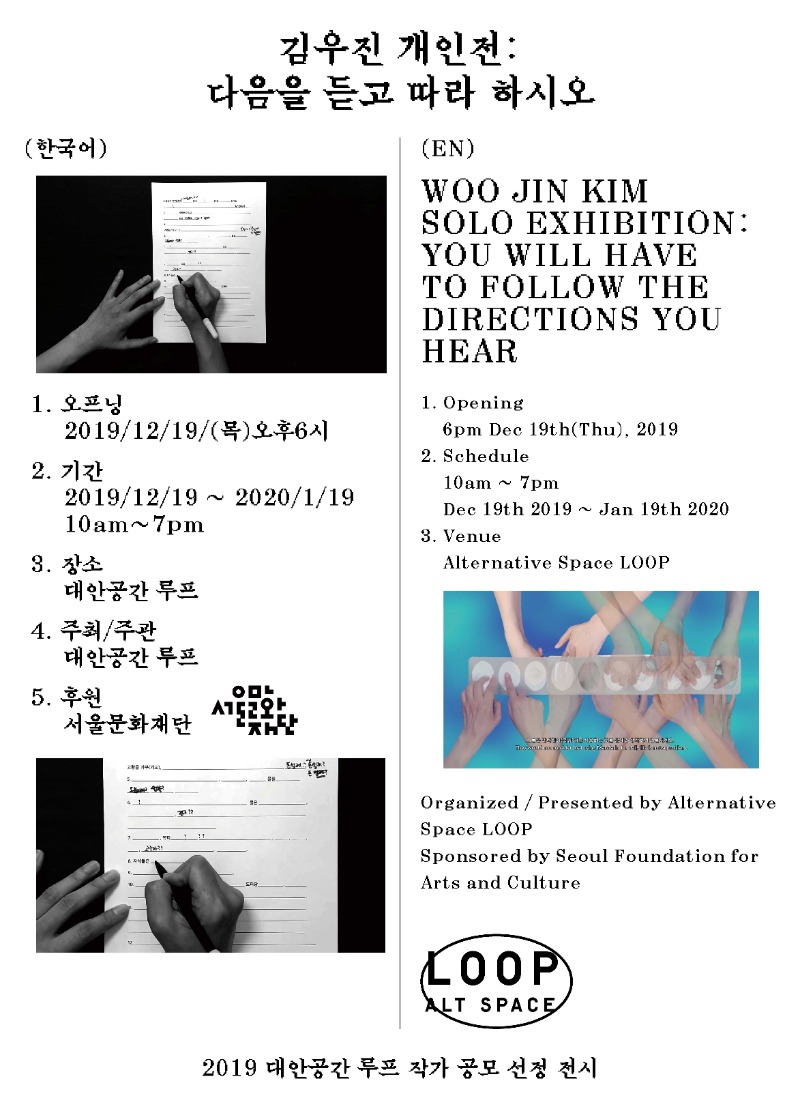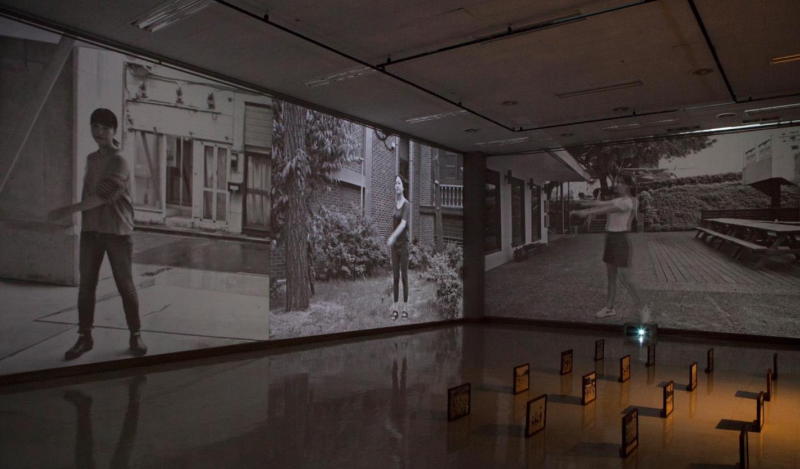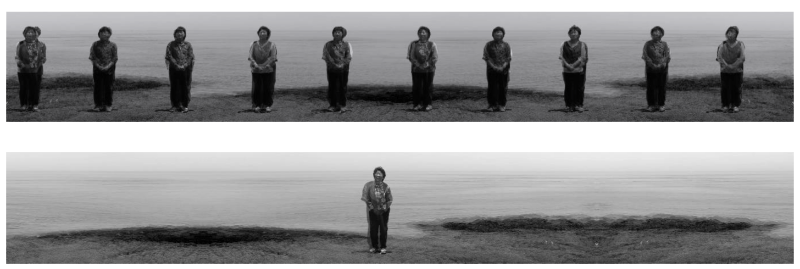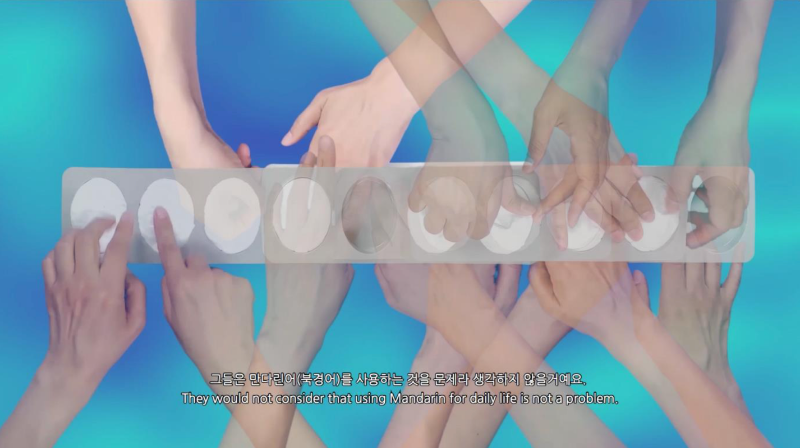
| Period| | 2019.12.19 - 2020.01.19 |
|---|---|
| Operating hours| | 10:00 - 19:00 |
| Space| | Alternative Space Loop |
| Address| | 20, Wausan-ro 29na-gil, Mapo-gu, Seoul, Republic of Korea |
| Closed| | New Year, Lunar New Year, Chuseok holidays |
| Price| | Free |
| Phone| | 02-3141-1377 |
| Web site| | 홈페이지 바로가기 |
| Artist| |
|
정보수정요청



|
|
Exhibition Information




Language is a distinct social system and convention unique to humans. The ability to acquire language, and to produce an infinite number of sentences based on this skill, is what distinguishes humans from other primates and makes them superior. This exceptional human ability has led to the creation of countless different languages, and throughout history, languages have undergone endless cycles of creation, development and extinction. Since the birth of imperialism and colonialism following the Age of Discovery, the languages of those colonialized nations gradually declined. After going through two World Wars, many languages in Asia were also lost as the continent underwent dramatic social shifts. Language education and policies dictated by the rulers aimed to underscore the cultural ideology and superiority of the ruling nation, and this practice still continues today in many parts of the world. Sharing a similar history, East Asia also witnessed a gradual extinction of native languages in many parts of the region, and although they represent different nations and races, this common experience of loss binds them in a meaningful way. In Korea, we are educated to believe that we are a homogenous, single-race nation united by one language. The standard language defined by the government is understood as “the language of the modern, educated and sophisticated citizens of Seoul” and to speak this language of a specific region and class designated by law is to be recognized as an “educated and upstanding member of the society.” Educated in Korea in the country’s only language, Woo Jin Kim’s curiosity on the subject of language emerged from a casual conversation with a friend while participating in an artist residency program in Taiwan. Taiwan, which also underwent dramatic changes in recent history, officially banned the use of all local and native dialects, only allowing standard Chinese (Standard Taiwanese Mandarin) to be spoken and taught at schools. Students who were caught using any other language or dialect was to wear a sign which read “I spoke in dialect” around their necks, while class leaders were to report to teachers if they saw anyone speaking in a dialect. The Prelude of the Perfect Ending consists of nine interviews with people from Taiwan, Hong King and Korea (Jeju Island) on remembering their native dialects. All of the interviewees were educated in their respective standard languages in school, and in one way or another, have been forced to stop speaking their native tongue. In the work, the artist recalls the memories of those individuals on how their language has changed over time. Narrated entirely in the Jeju dialect by an elderly grandmother, Korean Dictation Test_You Will Have to Answer the Questions You Hear, confuses the viewers educated in standard Korean. The standardization of Korean language eventually led to the decline of the Jeju dialect, and Koreans who speak standard Korean cannot understand the dialect. The Perfect Harmony is a video that presents a performance of the “Rowing Song (Yi Eo Do Sa Na)”, a Jeju folk song traditionally sung by the island’s female divers (haenyeo) as they head out to the sea. In the work, a part of the song is performed together by a vocalist specializing in the traditional Jeju divers’ songs (who holds the title of “Intangible Cultural Asset” awarded by the government) and the actual female divers of Jeju. “There are no true haenyeo anymore. Even those few left today will be gone too,” the divers sentimentally remark. Even their folk songs that were sung through generations are now converted to standard Korean, as most Jeju folk songs are performed and recorded today. The stories that grandmothers once told their granddaughters have now become incomprehensible and lost in translation, and ultimately, with the decline of language followed the decline of local cultures. As if to create a rupture on our firm belief in standardized education, Woo Jin Kim raises questions on our most basic social norms and systems that we have failed to question ourselves. One of her earlier works, Brave New Exercise, introduces the “national exercise” routines promoted by the government in Korea, Japan and Taiwan, and focuses on how people are able to reperform the routine by memory, even after many decades. These forms of group exercises largely originate from Japan’s imperialist culture, and in the video, the artist shows over sixty people performing a routine in striking uniformity. You Will Have to Follow the Directions You Hear is a familiar command which we all have heard since childhood. Under this command, we learned to exercise in groups and learn the language of our society. The few who have challenged its authority have been declared outcasts and outlaws. This exhibition stems from one individual’s simple question, and embarks on a journey into examining our compliant views and perceptions that have remained unchallenged until now. The invisible forces that control our perspectives are deeply embedded in our everyday lives, and they subtly eliminate our expressions of individuality in order to force us into collectivization. Woo Jin Kim’s work questions those very forces – the social standards that tell us what is right or wrong, and good or bad – which may have been devised for the convenience of the few in the first place. At the same time, the artist hopes that You Will Have to Follow the Directions You Hear will not be viewed in its historical and social context alone. Through these small questions stemming from our everyday lives, the artists hopes each viewer can reconnect with their own sense of freedom and individuality. Written by Sun Mi Lee
